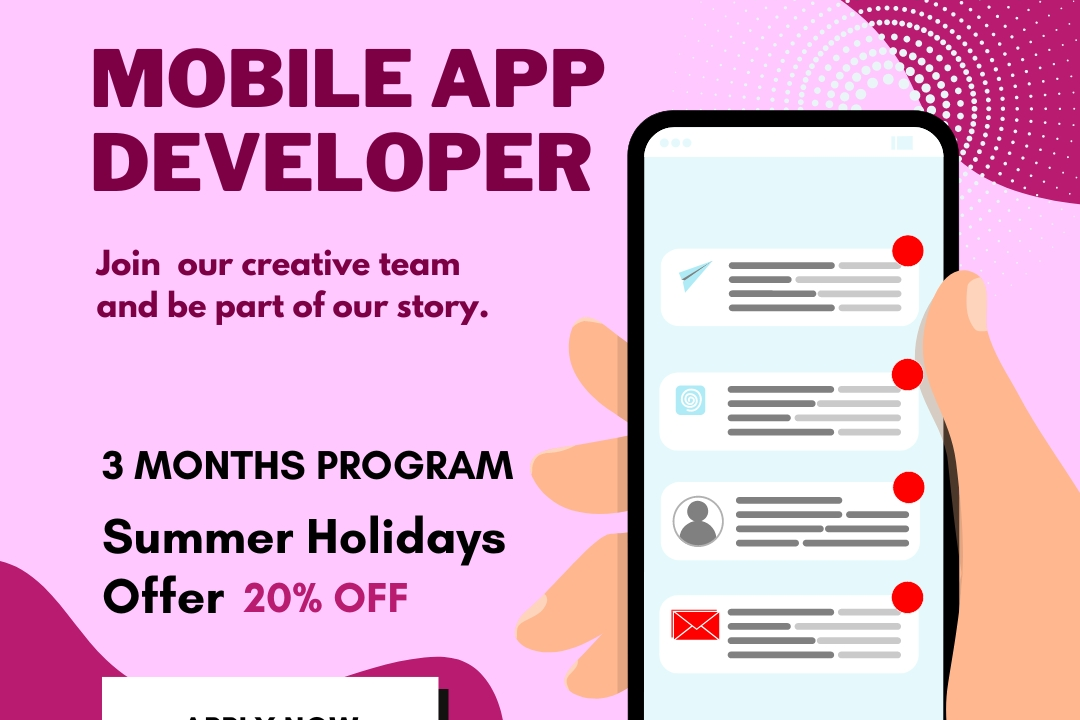Custom Views Development
Custom View Development Solutions
Custom Views Development
Custom views development refers to the process of creating tailored user interface components and layouts within applications to enhance the user experience and meet specific functional requirements. This involves designing and implementing unique views that go beyond standard UI elements, utilizing programming languages and frameworks such as Android, iOS, or web technologies like HTML, CSS, and JavaScript. Developers may leverage existing UI libraries or frameworks to speed up the process while also allowing for the customization of behaviors, animations, and interactions to fit the application's branding and usability goals. Through custom views, developers can provide a more engaging and effective interface that caters to the needs of the end-users.
To Download Our Brochure: https://www.justacademy.co/download-brochure-for-free
Message us for more information: +91 9987184296
1 - Introduction to Custom Views
Understand what custom views are and their significance in Android development. Custom views allow developers to create unique user interface components tailored to specific design and functionality requirements.
2) Understanding View Hierarchy
Learn about the Android view hierarchy and how custom views fit into it. This includes parent child relationships among different views and how they impact rendering and event handling.
3) The View Class
Discover the core components of the `View` class. Educate students on key methods such as `onDraw()`, `onMeasure()`, and `onLayout()` which are essential for rendering custom views.
4) Creating a Custom View from Scratch
Step by step tutorial on building a simple custom view. This could involve using basic shapes and colors to help students grasp the foundational concepts.
5) Custom Attributes
Dive into how to define and use custom attributes in XML for your custom views. This allows users to configure properties of a view directly in layout files.
6) Performance Considerations
Discuss best practices for ensuring that custom views are performant, such as avoiding excessive overdraw, minimizing layout passes, and optimizing drawing in the `onDraw()` method.
7) Handling Touch Events
Teach students how to manage touch input in custom views. This includes overriding methods like `onTouchEvent()` and implementing gesture detection.
8) Animations and Transitions
Explain how to integrate animations into custom views. Use examples to demonstrate using `ObjectAnimator` and `ValueAnimator` for enhancing user interaction.
9) Canvas and Paint
Familiarize students with the `Canvas` class and `Paint` attributes essential for custom drawing. They will learn to create visually appealing effects in their views.
10) Using Path for Complex Shapes
Introduce the `Path` class to create complex shapes and graphics in custom views, enabling students to design intricate UI elements.
11) ViewGroup vs. View
Clarify the distinction between a `View` and a `ViewGroup`. Explain when to use a custom `View` versus a `ViewGroup`, such as `LinearLayout` or `RelativeLayout`.
12) Testing Custom Views
Discuss strategies for writing unit tests and UI tests for custom views. Ensuring that views behave as expected under different circumstances is critical.
13) Integrating with Fragments and Activities
Explore how custom views can be incorporated into Activities and Fragments, emphasizing the lifecycle management and view binding.
14) Accessibility Considerations
Raise awareness of accessibility issues in custom views. Teach students how to make their custom views accessible following Android’s accessibility guidelines.
15) Real world Examples and Projects
Provide examples of successful apps using custom views. Engage students in a project where they can design and implement a custom view for a specific application need.
16) Debugging Custom Views
Provide techniques for debugging issues related to custom views, including the use of layout boundaries, performance profiling, and logging mechanisms.
17) Final Project and Presentations
Encourage students to apply their skills by developing a final project involving a custom view, culminating in presentations where they showcase their designs and implementations.
This outline provides a comprehensive approach to teaching custom view development to students, ensuring they gain a solid understanding and practical experience.
Browse our course links : https://www.justacademy.co/all-courses
To Join our FREE DEMO Session: Click Here
Contact Us for more info:
Android Training For Startups
Flutter Training in Wadhwan
Flutter Training in Pandharkaoda
Flutter Training in Puri
certified scrum master course material











